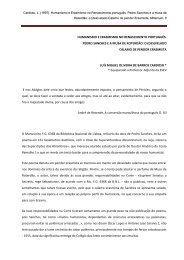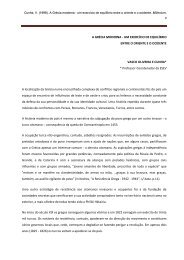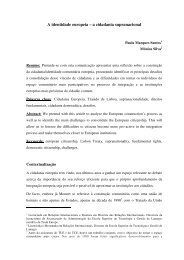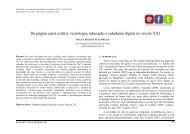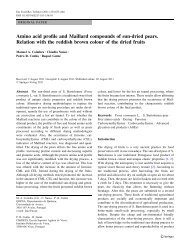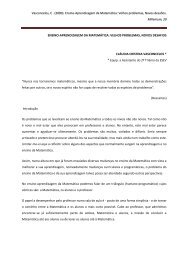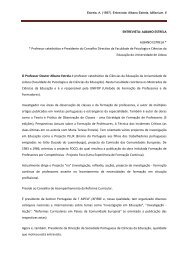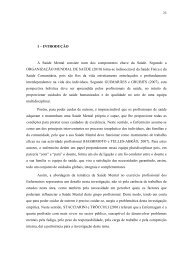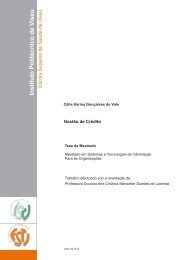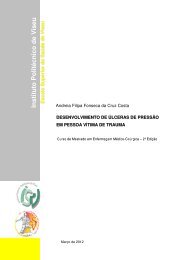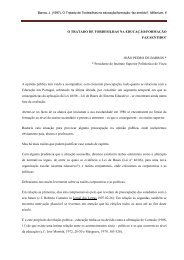Rationales for Internationalisation.pdf
Rationales for Internationalisation.pdf
Rationales for Internationalisation.pdf
You also want an ePaper? Increase the reach of your titles
YUMPU automatically turns print PDFs into web optimized ePapers that Google loves.
Wit, H. (1998). <strong>Rationales</strong> <strong>for</strong> <strong>Internationalisation</strong> of Higher Education. Millenium, 11internationalisation stabilise itself as an integral part of higher education policies? And isinternationalisation the solution to all our present problems of a multicultural and international society?Are we absolutely convinced that internationalisation will bring the local and the global into perfectharmony, or should we limit our optimism and see internationalisation only as one of the many ways inwhich multiculturalism, peace and mutual understanding can be tried to overcome?1. MeaningWhat do we mean with internationalisation of higher education? It would be going too far to presentand discuss here the many different definitions, terms and approaches to internationalisation present inliterature and higher education practice. In the course of a comparative study, Jane Knight of RyersonPolytechnic University in Toronto, Canada, and I have been working on <strong>for</strong> the Programme onInstitutional Management of Higher Education (IMHE) of the Organisation <strong>for</strong> Economic Co-operationand Development (OECD), we have come to the following working definition: "<strong>Internationalisation</strong> ofhigher education is the process of integrating an international/intercultural dimension into the teaching,research and service functions of the institution." (1997, 8)As you will notice from this definition, it includes several important elements:internationalisation is a processinternationalisation is a response to the international , to globalisation and is not to be confusedwith the globalisation process itselfinternationalisation includes both international and local elements (intercultural).This way of looking to and defining of internationalisation of higher education is quite different thanwhat frequently is done in studies dealing with this theme. In most studies internationalisation of highereducation is narrowed to one or a few activities, academic mobility, global or multicultural education,area studies, study abroad, etcetera.In these and other studies internationalisation is confused with a rationale: a political one, like peaceand mutual understanding, or an economic one, like the needs of a more and more international labourmarket, etcetera.And most of the studies ignore the link between international and local, between studying in aninternational environment and the fact that that environment includes the local environment.



